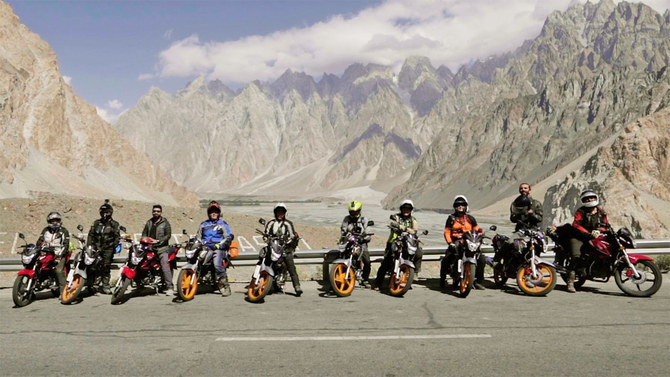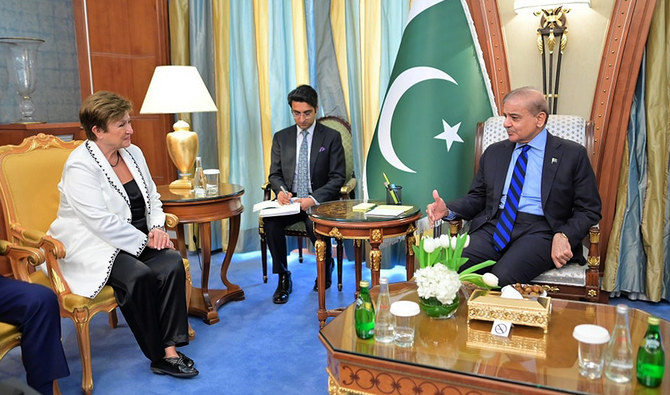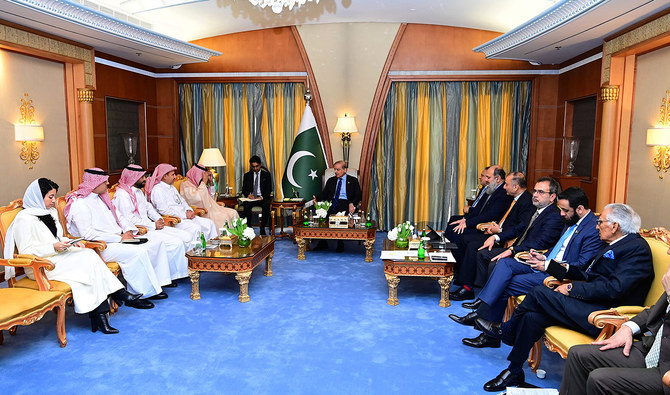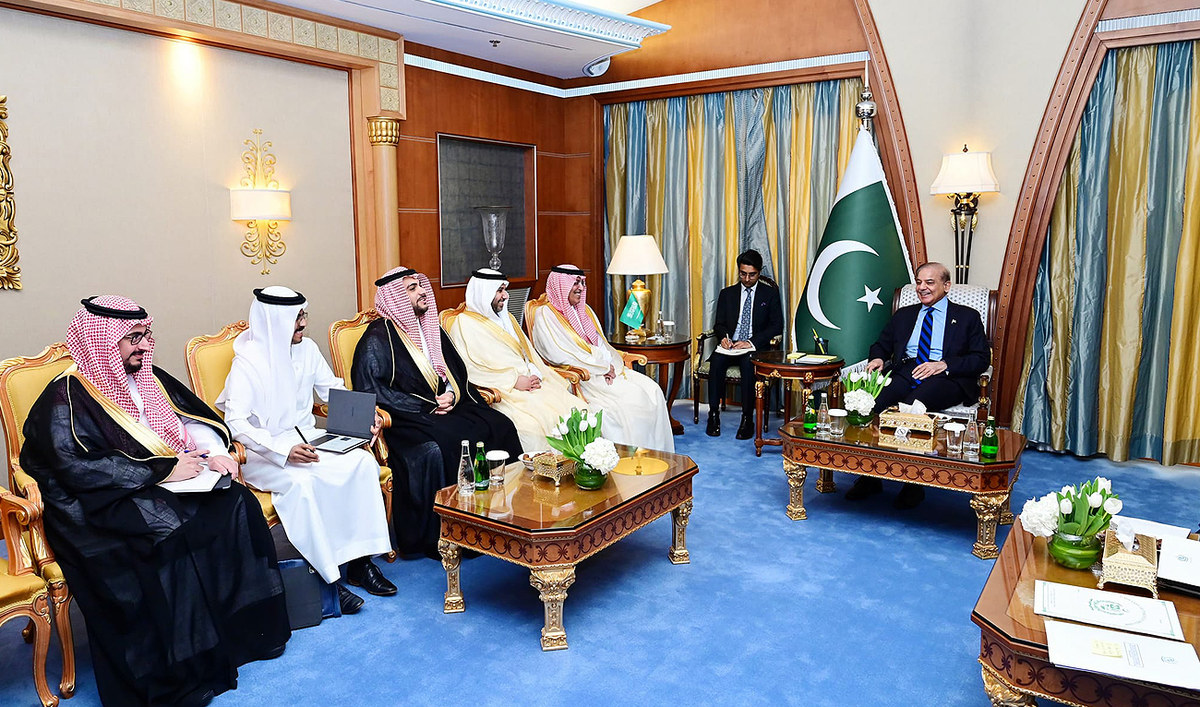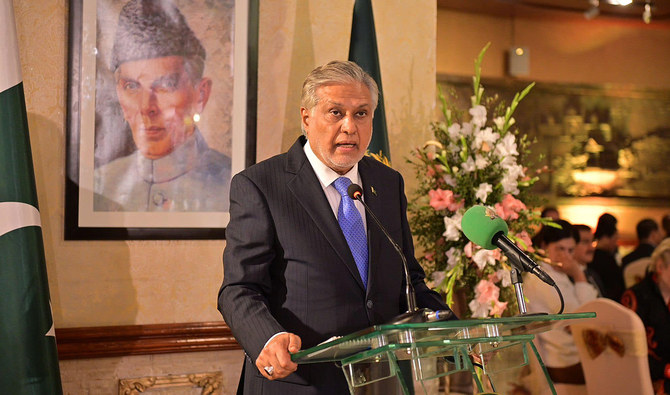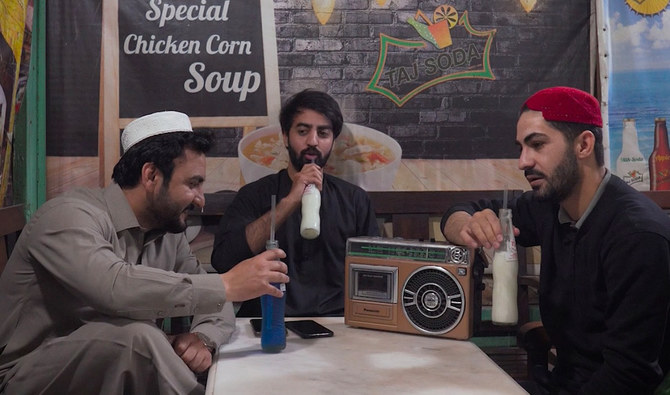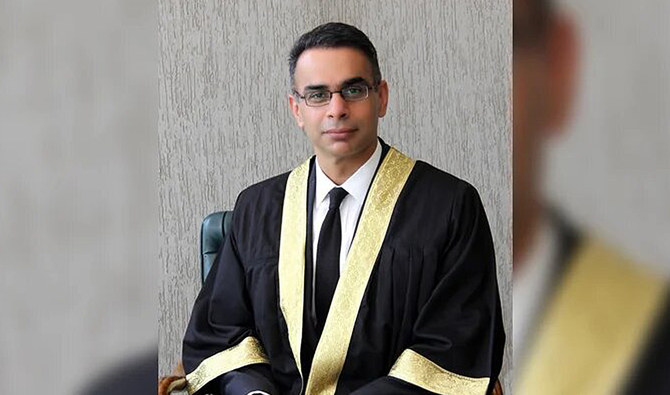ISLAMABAD: A group of women motorcyclists from the United States, who this month undertook a two-week-long journey through Pakistan’s north, said the region was a dream come true for adventurists: miles and miles of winding roads lined with white-toothed mountains and deep green valleys, and around every corner the “real delight” — a unique brand of hospitality the bikers had not found anywhere else in the world.
Chickistan, as the tour group is called, was founded in 2017 by motorcyclist Liza Miller from Santa Cruz, and Pakistani biker and founder of adventure company ‘A Different Agenda,’ Moin Khan, perhaps best known for his 2010 journey 28,000 kilometers from San Francisco to his hometown of Lahore with the national flag tied to his bike.
Miller, who has been riding motorbikes for the past 43 years and hosts the popular ‘Motorcycles and Misfits’ podcast, first came to Pakistan in 2015 and immediately fell in love with its mountains and its people, resolving to bring other women riders to the country, which she did as part of the first Chickistan tour in 2017.
A trip this September, with nine bikers aged 41 to 67, was the group’s third to Pakistan.
“To me [Pakistan] is the ultimate experience as a motorcycle rider,” Miller told Arab News in an interview in Islamabad last week before her flight back home. “The roads are amazing … The mountains and the rivers and the valleys, it’s like every national park in the US, all put together, day after day. Epic.”
“But the real delight,” she said, “are the people we meet along the way.”

The undated show shows Liza Miller, founder of Chickistan, atop her bike on the 3rd annual Chickistan trip (Photo courtesy: Moin Khan)
Indeed, the story of the group’s recent journey is a testament to the fact that there are many things in Pakistan that don’t make it into the news — Pakistani hospitality to strangers being one.
The experience of Chickistan, Miller said, was a sign that much good lay hidden behind the bad news.
Indeed, the past few weeks have been dominated by a flurry of bad news. New Zealand and England have canceled their cricket tours of Pakistan, citing vague security concerns. Militants have stepped up attacks on security forces and polio vaccine teams. The Afghan Taliban group has captured power in neighboring Afghanistan, unleashing fears of a spillover of violence into Pakistan.
Things used to be worse.
Pakistan was a major part of the legendary “hippy trail” stretching from Europe to Asia in the 60s, but began to lose tourists in the 70s due to an Islamization drive launched by then military dictator General Zia ul-Haq. Whatever remained of international tourism in the following decades disappeared after the September 11, 2001, attacks in the United States and the invasion of Afghanistan.
After that, few wanted to travel to Pakistan as foreigners became a top target for local branches of the Taliban and Al-Qaeda.
More than 70,000 people have been killed in Pakistan in militants attacks or military operations against terror groups in the last two decades.
Though security improved dramatically in recent years and the government has announced looser travel rules in the hope of reviving tourism, this year, however, attacks on the army and paramilitary forces in the country’s remote north and south west have once again picked up.
“I was nervous with how the last 20 years have gone here though,” said Jaime Smith, a retired teacher who has been riding bikes for over 40 years. “But I trusted Liza and I trusted Moin.”
The gamble paid off, Smith said: “I’ve never been anywhere where people were so welcoming … It made me feel almost bad as an American, because of the way people in the US perceive Pakistanis to be.”
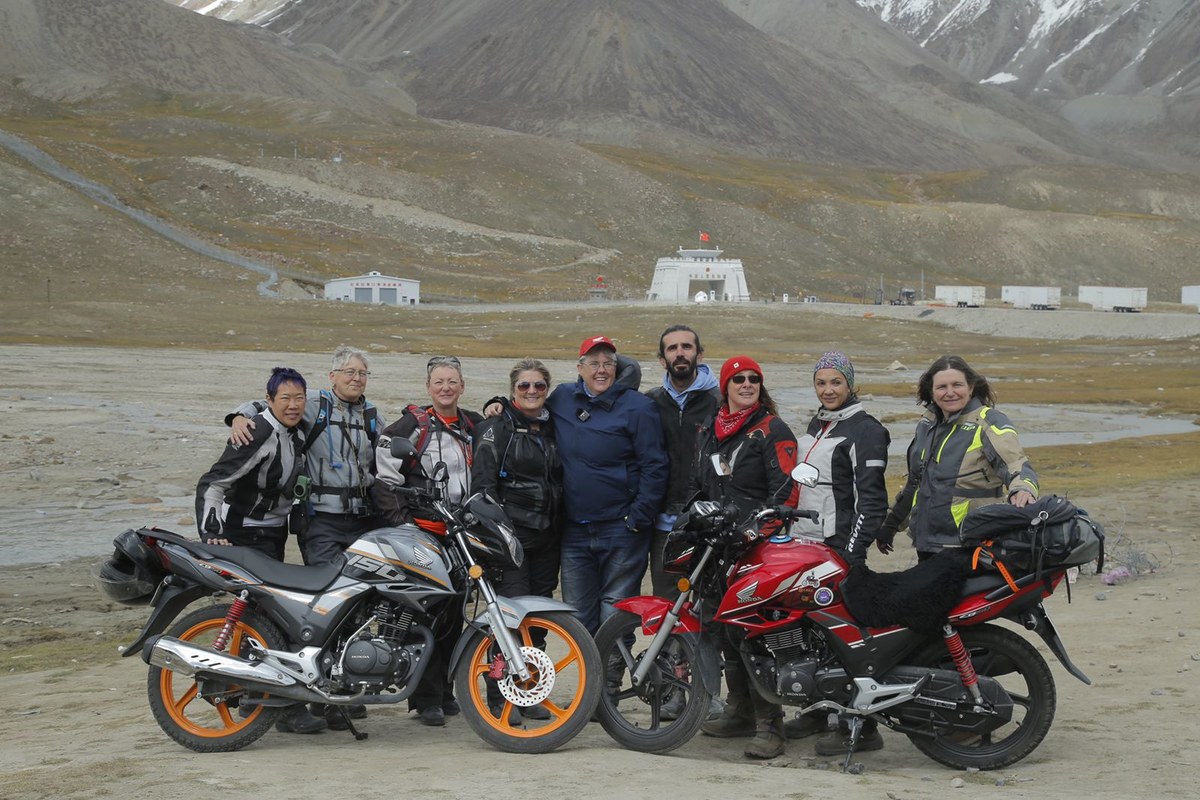
This undated photo shows members of Chickistan, a motorcycling tour group founded by Liza Miller from the United States and Pakistani biker Moin Khan, pose for a photo while near Khunjerab Pass in Pakistan. (Photo courtesy: Moin Khan)
Khan said he was glad the group of women gave Pakistan a shot despite headlines about suicide bombers, army offensives and political mayhem.
“Statistically Pakistan might not be the safest country in the world but it’s as safe as most countries,” he said. “Rather it might be more hospitable than a lot of countries … And now these guests who come in — they feel it.”
Miller shared the story of a farmer who invited the group to his home and served up delicious spreads of homegrown grapes with buttered bread and tea. When two riders got lost, the group finally found them in the company of young kids who had given them candy and promised to stay with them until their companions returned.
This kind of hospitality was common along the journey, a number of women in the group said.
However, the riders also said they recognized the extraordinary privilege of being white travelers in Pakistan, where foreigners are often showered with hospitality by members of the public and get access to restricted areas and meetings with top officials.
But Khan said the group had traveled without a security detail and did not get any special privileges from the government or security forces.
“We didn’t tell any tourism industry, big people or anything of that sort at all,” he said. “It’s just motorcycles and friends exploring the country.”

Women motorcyclists of Chickistan pose for a picture at a gas station right in Islamabad, Pakistan, on September 7, 2021 (Photo courtesy: Moin Khan)
It probably helped that the women traveled with a male companion.
Pakistan is the sixth most dangerous country in the world for women, according to the Thomson Reuters Foundation. The Karachi-based organization War Against Rape estimated that less than three percent of rape cases lead to convictions.
In a case that shook the nation last year, a woman was gang raped on a major highway, in front of her children, after her car broke down. Police in Pakistan also opened cases against hundreds of unidentified men this year after a young woman was sexually assaulted and groped by a crowd of more than 400 men in a park in Lahore as she made a TikTok video.
Miller said she hoped the Chickistan tour would reassure other women, local and foreign, to take a chance on Pakistan.
“I want to change these people’s opinions. I want to tell them my firsthand account that these people are nice ... you’re not in danger,” she said. “It’s a beautiful country.”



